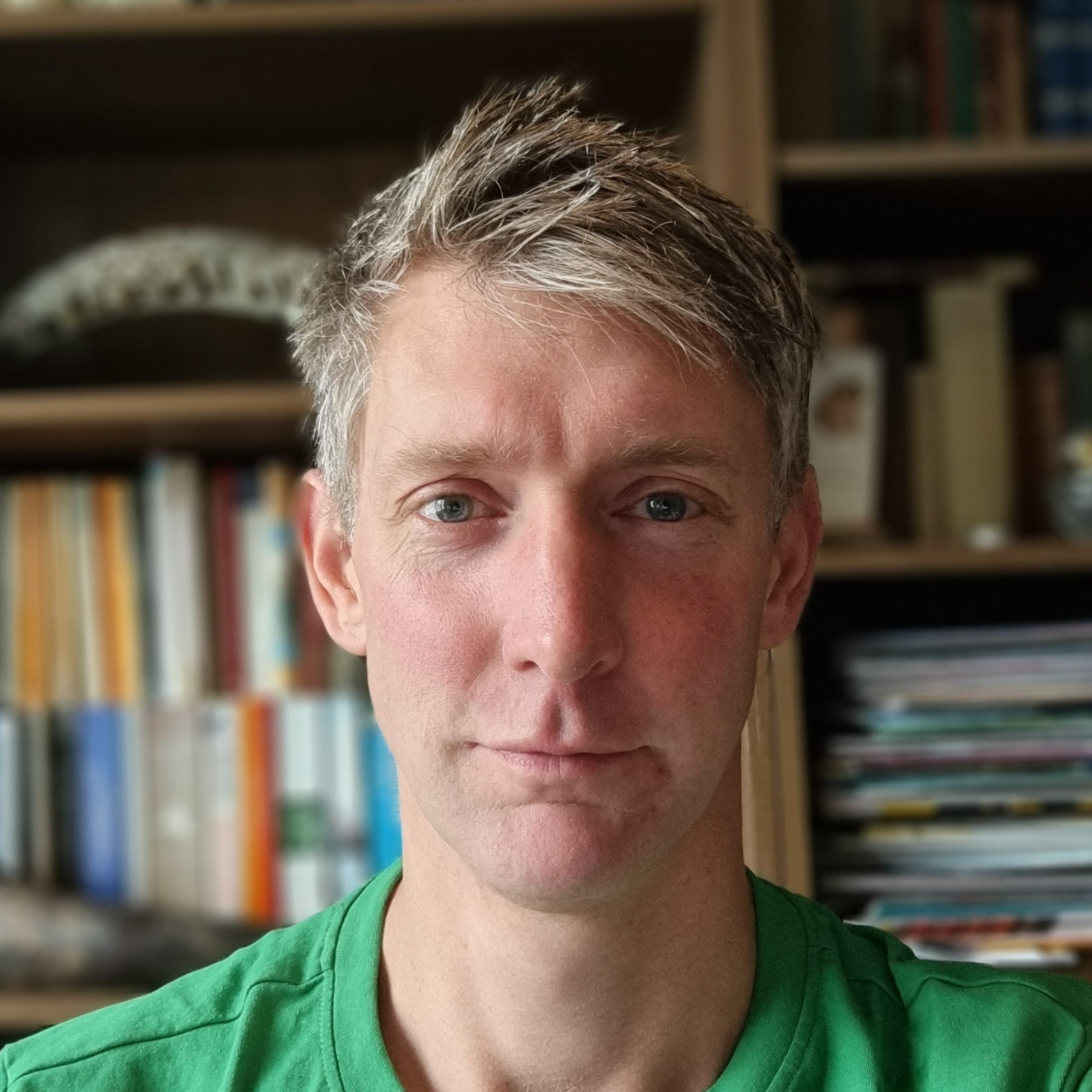
Chris Simms
Chris Simms is a freelance journalist who previously worked at New Scientist for more than 10 years, in roles including chief subeditor and assistant news editor. He was also a senior subeditor at Nature and has a degree in zoology from Queen Mary University of London. In recent years, he has written numerous articles for New Scientist and in 2018 was shortlisted for Best Newcomer at the Association of British Science Writers awards.
Latest articles by Chris Simms
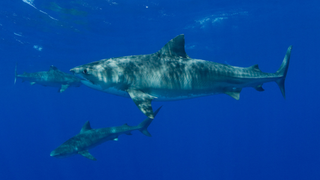
Shark attacks in Hawaii spike in October, and scientists think they know why
By Chris Simms published
Sharktober is real in Hawaii — and it's down to the reproductive pattern of predatory tiger sharks, an analysis of 30 years of data reveals.
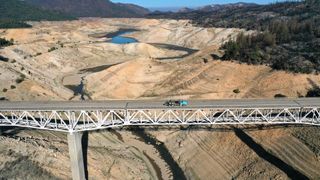
Californians have been using far less water than suppliers estimated — what does this mean for the state?
By Chris Simms published
Flawed assumptions about water demand mean suppliers in California overestimated future demand by an average of 74% over 20 years — positive news for the drought-embattled state.
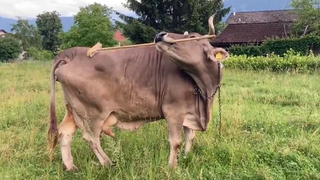
Ever watched a pet cow pick up a broom and scratch herself with it? You have now
By Chris Simms published
A pet cow in Austria started using a broom to scratch herself — the first ever documented case of bovine tool use.
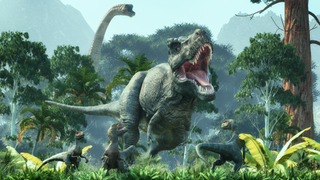
T. rex quiz: How much do you really know about the king of the dinosaurs?
By Chris Simms published
Almost everyone has heard of Tyrannosaurus rex, but how much do you actually know about this iconic dinosaur predator? Take our quiz to find out.
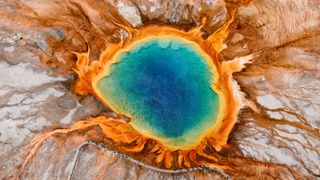
Yellowstone quiz: How much do you know about the first national park?
By Chris Simms published
Crammed full of epic scenery, steaming geysers, plants and animals, Yellowstone National Park is a spectacular place to visit, but how hot is your knowledge on it? Take our quiz to find out.
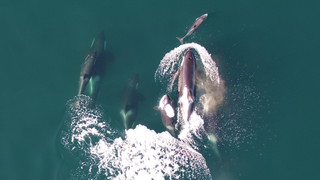
Killer whales are teaming up with dolphins on salmon hunts, study finds — but not everyone agrees
By Chris Simms published
There are eye-opening claims that orcas and dolphins are working together on salmon hunts and sharing food — but not everyone is convinced.
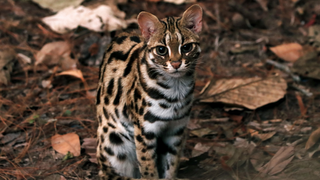
People in China lived alongside 'chicken-killing tigers' long before domestic cats arrived
By Chris Simms published
Leopard cats were living alongside people in ancient China for more than 3,500 years before domestic cats arrived from Europe via the Silk Road.
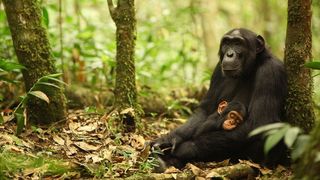
A decade-long chimp war ended in a baby boom for the victors, scientists discover
By Chris Simms published
A deadly conflict between rival groups of chimpanzees in Uganda led to comprehensive victory and a bounty of territory and food — does it show why humans go to war?
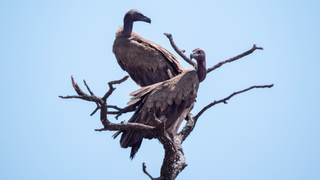
Why do vultures circle?
By Chris Simms published
Circling vultures aren't waiting for you to die, and seeing them should be a welcome sight because of the benefits they bring, experts say.
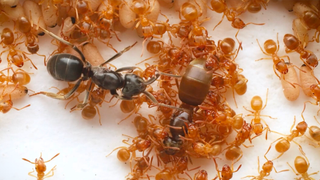
'Nothing but a nightmare': Worker ants are tricked into murdering their mom by an imposter queen — who quickly takes the throne for herself
By Chris Simms published
A sneaky spray of chemicals makes ant workers turn on their own mother — the queen — so a parasitic invader can take over the colony herself.
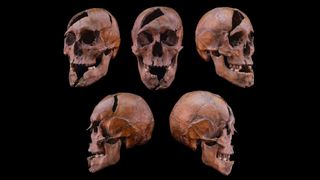
Medieval Hungarian duke was murdered in a brutal and coordinated attack, forensic analysis reveals
By Chris Simms published
The skeleton of Béla, the Duke of Macsó, shows that he was murdered by three assailants in a bloody and coordinated attack.
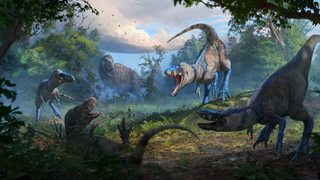
Nanotyrannus isn't a 'mini T. Rex' after all — it's a new species, 'dueling dinosaurs' fossil reveals
By Chris Simms published
An argument over whether fossils from several small dinosaurs represent a juvenile Tyrannosaurus rex or smaller adults of a separate species may finally be settled.

'An increasing attack on water resources from multiple fronts': Scientists warn 'day zero droughts' could hit before 2030
By Chris Simms published
Three-quarters of the world's drought-prone areas are at risk of extreme water shortages — known as "day zero droughts" — this century, and some could be hit before 2030.
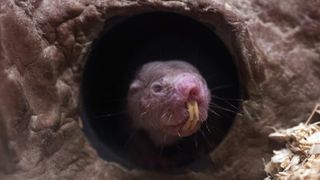
Some naked mole rats are designated toilet cleaners, study suggests
By Chris Simms published
Naked mole rats may have specific roles, such as cleaning the toilet chamber or transporting waste, rather than being generalist helpers. The findings suggest naked-mole-rat colonies are even more complex than we thought.

Iran among 'world's most extreme subsidence hotspots' with some areas sinking up to 1 foot per year, study finds
By Chris Simms published
The extraction of water from aquifers in Iran is causing an area the size of Maryland to sink, exposing an estimated 650,000 people to the risks of subsidence and freshwater depletion.
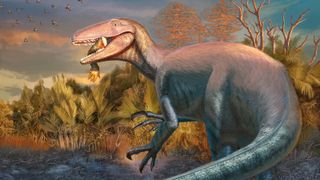
Gigantic dinosaur with 'claws like hedge trimmers' found with croc leg still in its jaws in Argentina
By Chris Simms published
Speedy megaraptor Joaquinraptor casali had big arms and claws like hedge trimmers that would have made T. rex's forelimbs look puny.
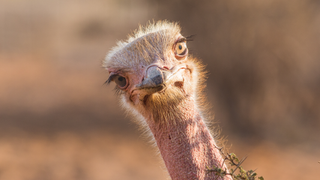
'Rare' ancestor reveals how huge flightless birds made it to faraway lands
By Chris Simms published
The mystery of how related flightless birds ended up so far apart on different continents may have been solved.
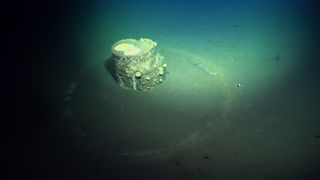
Scientists are finally learning what's inside mysterious 'halo' barrels submerged off Los Angeles
By Chris Simms published
At first thought to hold the pesticide DDT, some mysterious barrels dumped in the deep sea near Los Angeles actually contain caustic alkaline waste that stops most life from living nearby.
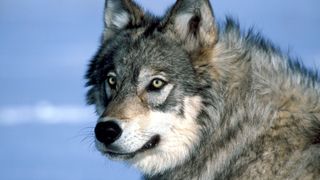
Return of wolves to Yellowstone has led to a surge in aspen trees unseen for 80 years
By Chris Simms published
Gray wolves were reintroduced in Yellowstone National Park in 1995 to help control the numbers of elk that were eating young trees, and it is finally paying off for quaking aspen.
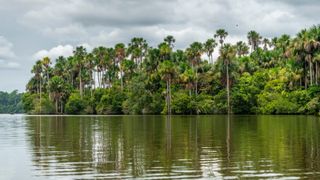
A peatland in the Amazon stopped absorbing carbon. What does it mean?
By Chris Simms published
Peatlands cover just a fraction of Earth's surface, but store huge amounts of carbon. In the Peruvian Amazon, one of these swamps has switched to carbon neutral.
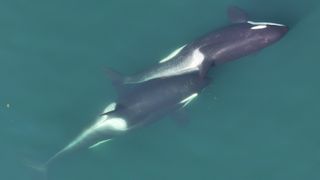
Salmon-hat wearing orcas also give each other massages with kelp, scientists discover
By Chris Simms published
Orcas have been spotted giving each other rubdowns with kelp tools, rubbing pieces of the seaweed between their bodies.
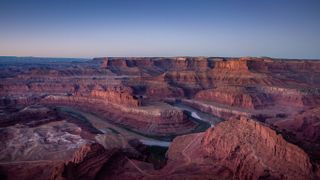
Groundwater in the Colorado River basin won't run out — but eventually we won’t be able to get at it, scientists warn
By Chris Simms published
The Colorado River basin has lost a Lake Mead’s worth of water in the last 20 years — and scientists say we’re passing a "critical point" where pumping groundwater will become too expensive.
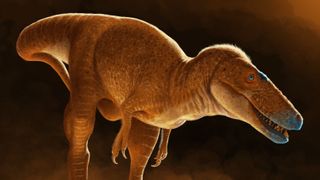
Meet 'Dragon prince' — the newly discovered T. rex relative that roamed Mongolia 86 million years ago
By Chris Simms published
A new species of dinosaur that was probably a princely ancestor of T. rex, the king of the dinosaurs, has been identified from fossils excavated in Mongolia.
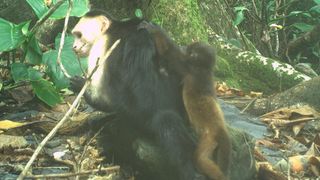
Capuchins have started abducting newborn howler monkeys in bizarre, deadly fad
By Chris Simms published
Young male capuchins have developed a strange trend of acquiring baby howler monkeys. It doesn't end well for the babies.
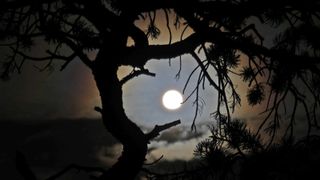
'This should not be published': Scientists cast doubt on study claiming trees 'talk' before solar eclipses
By Chris Simms published
Claims that spruce trees synchronize their responses to a solar eclipse were widely reported recently — but many researchers are sceptical of the results.
Get the world’s most fascinating discoveries delivered straight to your inbox.
